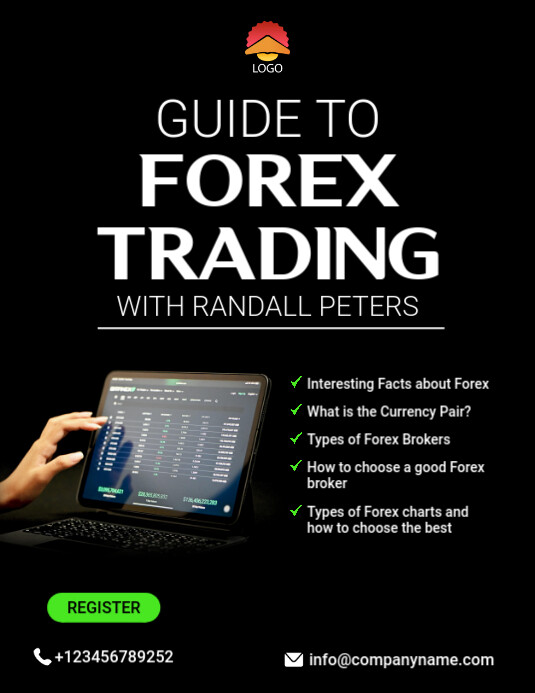Open Your Potential with a Comprehensive Forex Trading Course Today
Open Your Potential with a Comprehensive Forex Trading Course Today
Blog Article
Recognizing the Fundamentals of Currency Exchange in Today's Global Market
In a progressively interconnected worldwide economy, grasping the fundamentals of money exchange is crucial for stakeholders throughout different markets. As central banks apply impact and technical developments reshape money trading, the effects for worldwide commerce are far-reaching.
The Essentials of Money Exchange
Currency exchange is a fundamental aspect of the international economic situation, promoting worldwide trade and financial investment. It entails the conversion of one money into one more and is important for companies, governments, and people that engage in cross-border purchases. The currency exchange process takes area in the international exchange market (Forex), which is the biggest and most liquid economic market in the world, operating 1 day a day, five days a week.
At its core, currency exchange is driven by supply and need dynamics. Money are traded in sets, such as EUR/USD or GBP/JPY, and the exchange rate between them shows exactly how much one money is worth in terms of an additional. This rate varies continually because of trade flows, resources motions, and other market tasks.
Participants in the Forex market array from large banks and multinational firms to individual financiers and travelers. Each individual may have various purposes, such as hedging against exchange price danger, hypothesizing on money activities, or facilitating global purchases. Comprehending the fundamentals of currency exchange is critical for making educated choices in the international market, as exchange rates can significantly impact the expense of products and solutions, financial investment returns, and financial stability.
Elements Influencing Exchange Rates
Greater interest rates offer lenders much better returns family member to various other nations, drawing in even more international funding and triggering the currency to value. On the other hand, inflation rates play a critical duty; money in nations with reduced inflation rates often tend to value as buying power increases family member to higher-inflation economic climates.
Additionally, trade equilibriums influence currency value. A nation with a significant trade surplus typically sees its currency appreciate due to boosted foreign demand for its products and services, while a profession deficiency can compromise the money.
Political stability and financial performance are critical also; nations regarded as low-risk locations for investment tend to see their currencies appreciate. forex trading course. Market conjecture can also drive currency exchange rate variations, as investors anticipate future motions based on present financial signs and geopolitical occasions. These aspects jointly add to the dynamic nature of exchange rates in the global market
The Function of Reserve Bank

Reserve banks additionally participate in fx interventions to remedy extreme volatility or imbalances in exchange prices. These treatments might include purchasing or offering international money to preserve a preferred exchange rate degree. In addition, main financial institutions hold considerable forex gets, which can be released purposefully to sustain their money.

Innovation and Currency Trading
While main financial institutions shape the overarching landscape of money exchange, technical innovations have changed the technicians of currency trading itself. The expansion of electronic systems has democratized accessibility to international exchange markets, enabling private investors to get involved alongside institutional investors. On the internet trading systems, equipped with real-time data and analytical tools, assist in educated decision-making and have added to raised market liquidity.
Mathematical trading, powered by sophisticated software program, has actually revolutionized the speed and effectiveness of currency trading. Algorithms perform professions based upon predefined standards, minimizing human intervention and reducing the time required to maximize market motions. This automation boosts accuracy in profession implementation and help in the administration of complicated trading methods. Furthermore, the surge of expert system and device knowing algorithms provides predictive analytics, enabling investors to prepare for market fads with greater accuracy.
Blockchain innovation likewise promises a transformative influence on currency trading. By guaranteeing openness and minimizing deal costs, blockchain can simplify settlement procedures, possibly mitigating risks connected with standard trading techniques. Furthermore, cryptocurrencies, underpinned by blockchain, have actually introduced a new measurement to currency trading, check my source prompting market individuals to adjust to a developing financial ecological community. As innovation continues to progress, its impact on currency trading will likely grow, shaping future market characteristics.
Impacts on Global Profession
In the interconnected landscape of global profession, money exchange plays a crucial role fit financial relationships in between nations. Exchange prices influence the expense of exporting products and services, impacting competitive positioning in international markets. A strong currency can make a nation's exports original site extra pricey and less eye-catching on the global phase, possibly decreasing market share. Alternatively, a weaker currency can boost export competitiveness but might increase the cost of importing essential products, impacting profession balance.
Money variations can also cause financial uncertainties, complicating long-term planning for international firms. Organizations frequently hedge versus these threats through monetary instruments to maintain prices and earnings. Additionally, exchange rates influence international straight investment (FDI) decisions, as investors look for desirable problems to optimize returns, affecting funding flows throughout boundaries.
In addition, governments strive to keep steady exchange rates to cultivate predictable trading conditions, occasionally interfering in forex markets to attain economic purposes. Reserve banks might adjust passion rates or execute financial policies to influence money strength, consequently impacting profession characteristics.
Final Thought
A comprehensive understanding of money exchange fundamentals is necessary for navigating the intricacies of the worldwide market. Exchange rates, formed by interest prices, rising cost of living, and economic growth, are crucial in establishing currency valuations.
Report this page